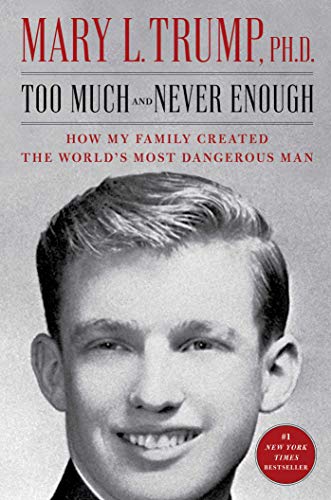What are
/r/ClinicalPsychology's
favorite Products & Services?
From 3.5 billion Reddit comments
The most popular Products mentioned in /r/ClinicalPsychology:
The most popular Services mentioned in /r/ClinicalPsychology:
The most popular reviews in /r/ClinicalPsychology:
I work in an outpatient chronic pain program on the psych team, and this study is way too good to be true. Chronic pain is rarely permanently treatable. I recommend this book:
https://www.amazon.com/Treating-Chronic-Pain-Pill-Free-Approaches/dp/1683730925
This one was helpful for my family. One of my kids was really struggling with a new sibling. This booked helped a bit and he really wound up loving the book.
​
https://www.amazon.com/What-Needs-Sears-Childrens-Library/dp/0316788287
It's ultimately going to depend on which program you apply to how much they care about your GRE/work experience/whether you have a masters or not. My program mostly cared about research experience and GRE score. Your results may vary. I believe the Insider's Guide to Graduate Programs in Clinical and Counseling Psychology will list the GPA range and averages for accredited programs in the U.S.
This is also a useful book: https://www.amazon.com/Insiders-Graduate-Programs-Counseling-Psychology/dp/1462541437 - it's for both Clinical and Counseling Psych programs of all kinds. It'll answer basically every question you might have.
Definitely find a research job first, as the others said - I particularly recommend finding a research position somewhat related to your clinical and research interest. Even better if you can get a research assistantship at the lab you want to end up in! But also consider applying to some of the (few) reputable Masters in ClinPsy if you have the money. One place that does this is Northwestern Feinberg School of Medicine - you can simultaneously apply to both PhD and MA. They have some really good research labs there, but the downside is it's extremely expensive. I got offered the MA but turned it down because $$$.
Correct.
Insider's Guide to Graduate Programs in Clinical and Counseling Psychology: 2020/2021 Edition (Insider's Guide To Graduate Programs In Clinical and Psychology) https://www.amazon.com/dp/1462541437/ref=cm_sw_r_apan_glt_fabc_95S11HQ6AY9HEEJXSBSC?_encoding=UTF8&psc=1
My personal plan would be to provide a handful of emotion regulation and distress tolerance skills, while also leaning on acceptance, defusion, and present moment contact to assist with the experiential avoidance component. A fair degree of psychoeducation about the emotion-avoidance spiral would like be beneficial as well. That said, there's a few books that come immediately to mind:
Clinical Manual for Assessment and Treatment of Suicidal Patients (it's a bit older, though)
Blackledge & Hayes (2001) Emotion regulation in acceptance and commitment therapy (Can't link to it for some reason, but a Google search should get you there)
I used this among some other resources when I first started, The Paper Office, Fourth Edition: Forms, Guidelines, and Resources to Make Your Practice Work Ethically, Legally, and Profitably (The Clinician's Toolbox) https://www.amazon.com/dp/1593858353/ref=cm_sw_r_cp_api_fabt1_EwvUFb0D4BABD
There’s a new edition now, The Paper Office, Fourth Edition: Forms, Guidelines, and Resources to Make Your Practice Work Ethically, Legally, and Profitably (The Clinician's Toolbox) https://www.amazon.com/dp/1593858353/ref=cm_sw_r_cp_api_fabt1_EwvUFb0D4BABD You can sign onto one of the practice management programs like Simplepractice, that has documentation, scheduling, billing, telehealth platform all in one integrated package. There’s templates and webinars and a user support forums offered. A lot of my colleagues get referrals from Psychology Today listing.
For clinical disorders related knowledge, I recommend Abnormal Psychology by Hooley, Butcher, Mineka: https://www.amazon.com/Abnormal-Psychology-17th-Jill-Hooley/dp/0133852059/ref=sr_1_1?crid=2B2VUYEXQNLI2&dchild=1&keywords=abnormal+psychology+jill+m+hooley&qid=1601557314&sprefix=abnormal+psychology+jill+%2Caps%2C341&sr=8-1
​
For therapy related knowledge (and being a good doctor in general), The Gift of Therapy by Irvin Yalom.
I highly recommend reading this! Discusses a lot the questions you posed at great length, with great examples and analogies. https://www.amazon.com/Early-Career-Researchers-Toolbox-Insights/dp/1734442506
The best research shows that the orientation of the therapist doesn't matter that much in terms of outcome. Wampold's book The Great Psychotherapy Debate is probably the best place to start with that research.
As far as the Rorschach goes, I wouldn't say that's the best example of psychoanalytic thinking. There are many reasons to doubt the Rorschach's validity, including the fact that much of the research supporting the Rorschach has never been published in peer-reviewed sources.
Different approaches often favor different types of evidence. Psychoanalysis tends to favor theory, case histories, etc., while CBT tends to favor traditional research.











